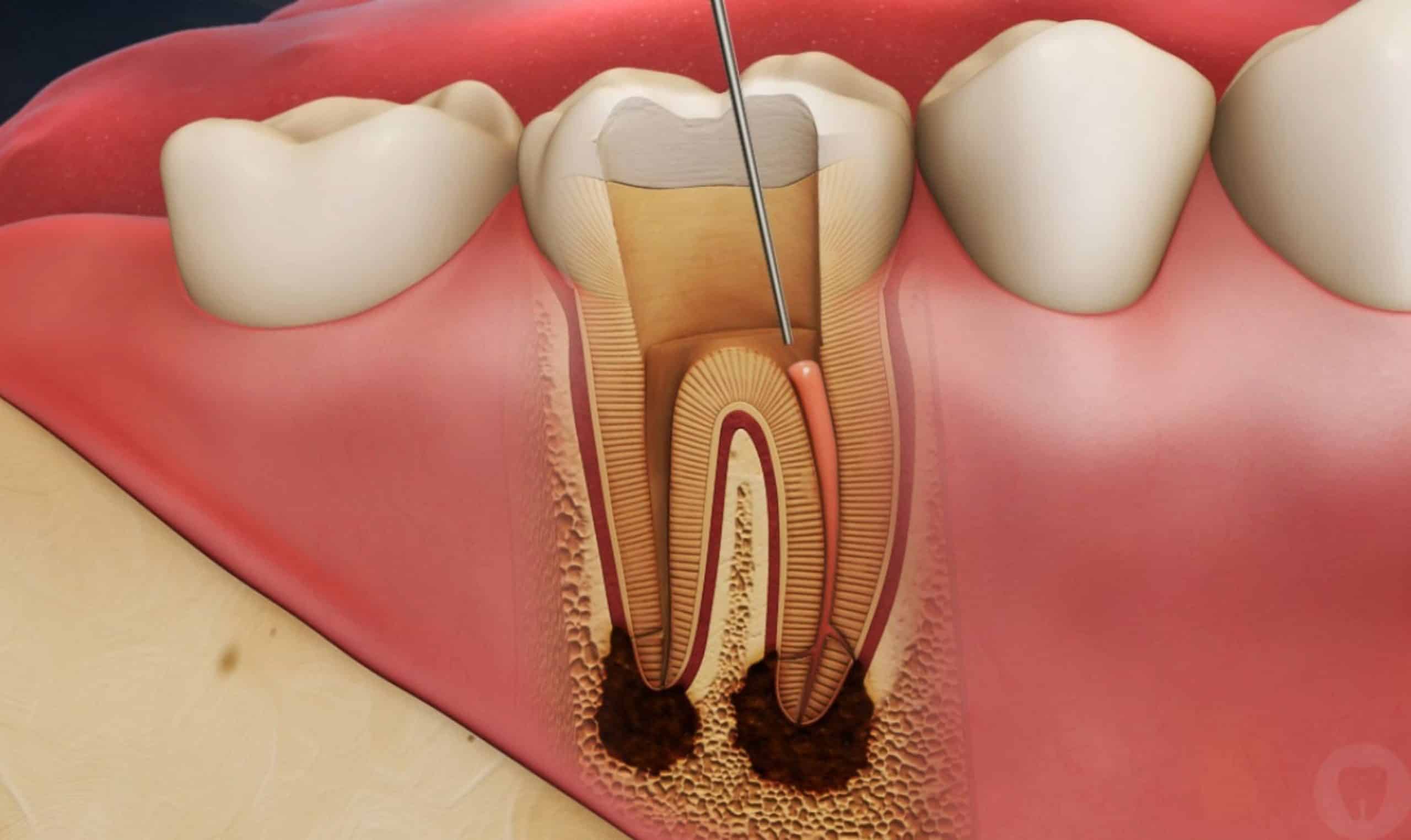Root Canal in North Hollywood, CA
A root canal is a dental procedure that involves removing the infected or damaged pulp from the interior of a tooth. The pulp is the soft tissue inside the tooth that contains nerves, blood vessels, and connective tissue. When the pulp becomes infected due to deep decay, trauma, or cracks in the tooth, it can cause severe pain and lead to further complications if not treated promptly.
The primary objective of a root canal is to eliminate the infection, relieve pain, and restore the tooth’s function. This treatment can prevent the need for tooth extraction and maintain the natural tooth structure.

When Are Root Canals Necessary?
Root canals are necessary for various reasons, including:
- Severe tooth decay: When a cavity penetrates the outer layers of the tooth and reaches the pulp, it can cause infection and pain.
- Dental trauma: Accidents that cause cracks or fractures in a tooth can expose the pulp to bacteria, leading to infection.
- Recurrent infections: Previous dental treatments, such as fillings or crowns, may fail, allowing bacteria to re-enter the pulp.
- Pulpitis: Inflammation of the pulp, often caused by untreated cavities or injury, can lead to severe pain and sensitivity.
Symptoms Indicating You May Need a Root Canal in North Hollywood, CA
If you are experiencing any of the following symptoms, it may indicate that you need a root canal:
- Severe toothache: Intense pain when chewing or applying pressure.
- Sensitivity: Prolonged sensitivity to hot or cold, even after the source has been removed.
- Swelling and tenderness: Swelling in the gums surrounding the affected tooth.
- Discoloration: Darkening of the tooth, indicating potential internal damage.
- Pus discharge: Presence of pus or an abscess near the tooth, indicating infection.
If you notice any of these symptoms, it is essential to schedule an appointment at A-Dental Center as soon as possible.
The Root Canal Procedure in North Hollywood, CA: Step-by-Step
Step 1: Initial Consultation
During your initial visit, Dr. Elzayat will conduct a comprehensive examination of your teeth and gums. This may include X-rays to assess the extent of decay or infection. Based on the evaluation, he will explain the need for a root canal and discuss the procedure with you.
Step 2: Local Anesthesia
To ensure your comfort during the procedure, local anesthesia will be administered to numb the affected tooth and surrounding area. You may feel some pressure during the treatment, but you should not experience any pain.
Step 3: Tooth Isolation
To keep the tooth dry and free from saliva, a rubber dam will be placed around the affected tooth. This isolation is crucial for maintaining a sterile environment during the procedure.
Step 4: Accessing the Pulp Chamber
Dr. Elzayat will create a small opening in the crown of the tooth to access the pulp chamber. This allows him to remove the infected or damaged pulp.
Step 5: Cleaning and Shaping the Root Canals
Using specialized instruments, Dr. Elzayat will carefully clean and shape the interior of the root canals. This process removes any debris, bacteria, and infected tissue. The canals will then be thoroughly disinfected to eliminate any remaining bacteria.
Step 6: Filling the Canals
After cleaning, the root canals will be filled with a biocompatible material called gutta-percha. This material seals the canals to prevent future infections. The access opening will also be closed with a temporary or permanent filling, depending on the treatment plan.
Step 7: Follow-up Care
Recovery and Aftercare
After a root canal, it is normal to experience some tenderness or mild discomfort in the treated area. Here are some tips for a smooth recovery:
Pain Management
Over-the-counter pain relievers, such as ibuprofen or acetaminophen, can help manage any discomfort. Follow the dosage instructions on the package. If prescribed, take any medication as directed by Dr. Elzayat.
Dietary Considerations
Stick to soft foods for the first few days after the procedure. Avoid hard, crunchy, or sticky foods that could cause discomfort. Stay hydrated and maintain a balanced diet to support your healing.
Oral Hygiene
Continue your regular oral hygiene routine, but be gentle around the treated area. Brush and floss carefully to keep the area clean and avoid irritation. If you experience swelling or discomfort, rinse your mouth with warm salt water to reduce inflammation.
Follow-up Appointments
Attend any follow-up appointments scheduled by Dr. Elzayat to ensure proper healing and evaluate the need for further treatment, such as a dental crown.
The Benefits of Root Canal Treatment in North Hollywood, CA
- Pain relief: The primary benefit of a root canal is the relief from the severe pain caused by infection or decay.
- Preservation of natural teeth: By saving your natural tooth, you maintain your bite and prevent surrounding teeth from shifting.
- Improved oral health: Eliminating infection helps prevent the spread of bacteria to other teeth and gums, reducing the risk of further dental issues.
- Restored function: After treatment and restoration, you can eat and speak normally, improving your overall quality of life.
- Cost-effectiveness: While the initial cost of a root canal may seem high, it is often more cost-effective in the long run compared to the costs associated with tooth extraction and replacement
Conclusion
Root canal treatment is a safe and effective way to relieve pain, preserve your natural tooth, and restore your oral health. At A-Dental Center in North Hollywood, CA, Dr. Fadi Elzayat is committed to providing compassionate care and ensuring your comfort throughout the process. If you are experiencing symptoms of tooth decay or infection, don’t hesitate to schedule an appointment. Our dedicated team is here to help you achieve and maintain a healthy, beautiful smile. Your journey to better dental health starts with us!



